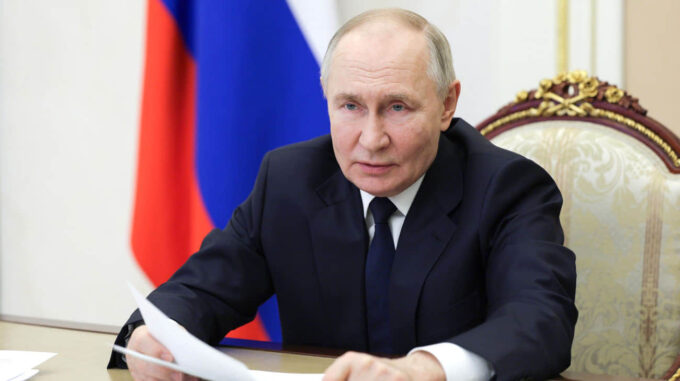Putin calls strikes on Iran “unprovoked aggression”: Russia questions justification of international attacks

In his latest speech, which received wide coverage on domestic and foreign news sources, Russian leader Vladimir Putin sharply condemned the recent strikes on Iran's nuclear facilities, calling them "unprovoked aggression" that has no constructive basis. The statement was made during a press conference with Iranian Foreign Minister Abbas Araqchi, who was in Moscow for an official visit on June 23. According to the TASS, RIA Novosti and RBC news agencies, Putin's corresponding words were spoken late at night, and in them he condemns any actions against Tehran without clear justifications, emphasizing that "there are no grounds or justifications for such aggression." In his speech, he emphasized that “Russia is making every effort to support the Iranian people in difficult international conditions.” At the same time, Abbas Araqchi confirmed that Iran considers such actions by the United States and Israel illegitimate and condemns their policy towards his country. The key point of this statement — the tone in which Putin spoke — indicates Russia’s unwavering support for the Iranian position and its readiness to counteract what Moscow calls “unjust external interference.” When analyzing this situation, it is important to remember the context: Russia has recently been actively using Iranian Shahed drones to strike the territory of Ukraine, which indicates close military and political ties between the two countries. Against the backdrop of these events, it is worth recalling that in recent days, controversial energy and military intrigues have again intensified in the global geopolitical space. The background to this “verbal duel” was a report from Israel, which on June 13 announced that it had carried out a “preemptive strike” on Iranian military facilities aimed at disrupting Tehran’s nuclear program and neutralizing its military objectives. This was the first large-scale echo of the tension that soon continued into global turbulence. Subsequently, on June 22, the United States carried out a series of targeted air strikes on three Iranian nuclear facilities — Fordow, Natanz, and Isfahan. The US authorities praised the strike as a “successful” one, and President Donald Trump in his commentary called on the Iranian side to immediately conclude a peace treaty. For the first time in a long time, he also threatened the Iranian side with “much larger strikes” if it refused to cooperate. Trump himself emphasized that his administration seeks to increase diplomatic pressure on Tehran, while warning against any attempts at revenge. At the same time, as part of an attempt to resolve the conflict, the American leader noted that Russian President Vladimir Putin had allegedly expressed a desire to resolve the glaring contradictions in the Middle East and offered his assistance as a mediator. However, Trump replied that a prerequisite for such cooperation should be the resolution of the Russian-Ukrainian conflict, which remains more important for the United States and for him personally. In general, recent events in international politics demonstrate how tense and multifaceted the current confrontations in the region are. Russia, having officially confirmed its support for Iran and condemning the attacks on it, at the same time continues to support its military campaign in Ukraine, for which Moscow’s main concern is to maintain control and influence in the region. This creates a complex dynamic where every step and every statement has far-reaching consequences for global security and stability. Delving into this history, it is important to realize that events in the Middle East and Europe are closely intertwined in the global system of geopolitical balance, and their development depends on the decisions of world leaders and national strategies. In this context, the Ukrainian war takes on even greater importance, as it becomes a tense epicenter of global confrontation, and the destabilization of the situation is a potential catalyst for new conflicts and changes in the international order.

